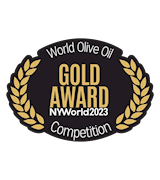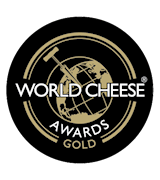TABLE OF CONTENTS
Best Albanian Foods
MAIN INGREDIENTS
One of Albania's national dishes, fërgesë tirane is a baked vegetable and cheese specialty originating from the capital of Tirana. Traditionally, this recipe uses bell peppers, onions, tomatoes, locally made salted cottage cheese (or feta cheese as a substitute), basil, butter, flour, and olive oil.
The vegetables are sautéed, while the butter and flour make a roux in a separate pan, and the cheese is set to melt over it. All the ingredients are mixed in small clay pots, seasoned, and baked in the oven. After the dish has slightly cooled down, it is served with crusty bread on the side.
MAIN INGREDIENTS
One of the staples of traditional Turkish cuisine, sarma consists of a filling that is snugly surrounded by leaves or leafy vegetables. There are numerous versions of this dish but the mixture typically combines ingredients such as minced meat, rice or bulgur, various herbs, seasonings, red pepper, paprika, ground sumac, or tomato sauce, while the typical wrapping usually includes vine, cabbage, or sauerkraut leaves, or a variety of leafy vegetables such as collard greens and swiss chard.
Having its roots in the Ottoman Empire, sarma is also traditionally consumed in the Balkans, the countries of Central Europe, the South Caucasus, and the Middle East. Although it is commonly enjoyed as a filling lunch or dinner (typically during the winter season), sarma is often prepared on special occasions and holidays.
MAIN INGREDIENTS
These delectable fried meatballs are prepared in both Albania and Kosovo either as a main dish or an appetizer. The origin of qofte fërguara can be ascribed to Turkish and Middle Eastern influence on the region, evident in both the ingredients and the method of preparation.
The mixture for the meatballs is made by combining either minced lamb or beef, and sometimes even chicken meat with feta cheese, garlic, onions, breadcrumbs, and mint leaves. The mixture is seasoned with salt, pepper, often oregano, and sometimes cinnamon.
Gjizë is a type of dry curded cheese, made from yogurt and citric acid. The texture and taste resemble a sour ricotta, but gjizë can be enriched with garlic, herbs, salt or other spices. There are two methods of making gjizë. One is to combine the ingredients, put them in a cheesecloth, and let it hang for five to six hours.
The other method involves heating up the combined yogurt and citrus juice in a pan and simmering it on low heat. The proteins bind together quicker and release some excess liquid, so it takes less time for yogurt to curdle and become cheese. Gjizë can be consumed as it is, used as a filling for burek, or as a part of another typical Albanian dish, Fërgesë.
MAIN INGREDIENTS
Ballokume is an Albanian biscuit originating from the city of Elbasan that was, and still is, traditionally prepared on Dita e Verës, a pagan holiday celebrated annually on March 14, first only in Elbasan, and from 2004 throughout Albania as a national holiday.
The necessary ingredients are simple: only butter, sugar, eggs, and cornflour, but when it comes to equipment, it is advised to use a copper bowl which will help in making the dough smooth and silky as it gets heated from kneading. Sweet and chewy, this traditional cookie is also called kulaç me finj as it may (optionally) contain finj, a mixture of ashes from a wood stove boiled in water.
MAIN INGREDIENTS
Flija is a typical dish of Albanian cuisine, prepared both in Albania and Kosovo. Although it is commonly termed as a pie or a cake, flija can more accurately be described as a stack of layered pancakes. The recipe consists of two different mixtures; one for the batter - usually consisting of flour, water, salt, and eggs, and the second mixture, used as a filling, prepared by blending together oil, butter, and yogurt or kaymak.
There are numerous versions of the recipe, but the ingredients always remain simple, which is in contrast with a rather laborious and time-consuming method of preparing the dish. The batter is poured in such a pattern that the layers consist of triangle-shaped gaps.
Tavë kosi, dubbed the unofficial national dish of Albania, is a casserole dish consisting of lamb meat and rice that's been seasoned and topped with kos, Albanian soured milk made from goat's or ewe's milk. The dish dates back to the 15th century and originates from the town of Elbasani, but today it is enjoyed throughout Albania and Kosovo, as well as Turkey, where it's known under the name Elbasan tava, topped with béchamel sauce instead of kos.
The original recipe has now been modified, so instead of soured milk, the dish is usually coated with a sauce made of yogurt and eggs, while another common variation, tavë kosi me mish pule, replaces lamb with chicken meat.
MAIN INGREDIENTS
Petulla is a traditional snack and the Albanian version of fried dough. The dough is usually made with a combination of flour, yeast, milk, eggs, sugar, salt, and vegetable oil. Once mixed, the dough is left to rest, and it's then scooped out and dropped in hot oil in batches.
The dough balls are cooked on all sides for a few minutes until golden brown. The fried dough is drained on paper towels and it's then enjoyed with powdered sugar, honey, raspberry jam, or feta cheese for a salty kick.
MAIN INGREDIENTS
Papare is a simple Albanian dish that is primarily made with small pieces of stale bread fried in oil or butter until nicely colored and crispy. The dish can be made in sweet or savory versions, depending on individual preferences. Sugar and water are added to the bread pieces in the sweet version, and the whole thing is cooked until fragrant and caramelized.
The savory papare, on the other hand, uses crumbled and salted curd cheese known as gjize in Albanian, or feta cheese, and (optionally) meat brine or cheese brine for additional flavor. Oregano, mint, garlic, or spring onions are often added on top of the fried bread to enhance the flavor of this simple dish even further.
Kernacka Korçë is a traditional dish of small, grilled sausages from minced meat (usually beef or lamb) mixed with onions, garlic, bread crumbs, and various spices. The mixture is formed into small sausages and grilled to perfection, resulting in a flavorful and juicy meat dish.
Kernacka is typically served with fresh bread and salads and sometimes accompanied by a yogurt-based sauce or pickled vegetables. This dish is a popular staple and street food in Albanian cuisine, particularly in the Korçë area.
TABLE OF CONTENTS
Best Albanian Food Producers
The Illyrian Press is an olive oil producer based in Albania. The company focuses on producing high-quality extra virgin olive oil using traditional methods. It sources olives from local groves in the region, ensuring a fresh and authentic product.
The company emphasizes sustainable practices in its production process.
TABLE OF CONTENTS
Best Albanian Food Products
AWARDS

NYIOOC - Gold
2023
AWARDS

World Cheese Awards - Gold
2024
TasteAtlas food rankings are based on the ratings of the TasteAtlas audience, with a series of mechanisms that recognize real users and that ignore bot, nationalist or local patriotic ratings, and give additional value to the ratings of users that the system recognizes as knowledgeable. For the “Top 23 Albanian Foods” list until March 27, 2025, 1,265 ratings were recorded, of which 633 were recognized by the system as legitimate. TasteAtlas Rankings should not be seen as the final global conclusion about food. Their purpose is to promote excellent local foods, instill pride in traditional dishes, and arouse curiosity about dishes you haven’t tried.



















